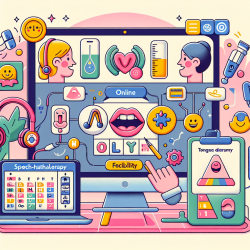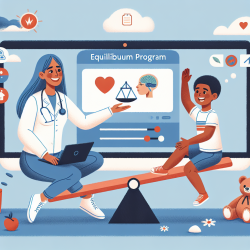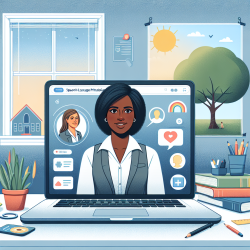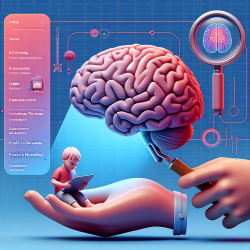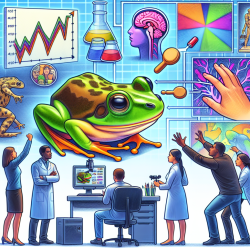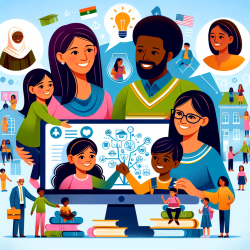As a speech-language pathologist committed to data-driven decisions and passionate about creating great outcomes for children, it’s crucial to stay informed about the latest research and tools that can enhance our practice. The research article "Lessons learned about development and assessment of feasibility of tools for health and rehabilitation services" provides invaluable insights into the development and assessment of tools for health and rehabilitation services. Here, we explore how practitioners can leverage these findings to improve their skills and outcomes in online therapy.
Key Lessons from the Research
The study outlines three case studies from South Africa, focusing on the development of contextually relevant tools through pilot and feasibility studies. These tools were designed to address specific challenges in health and rehabilitation services. Below are the key lessons learned:
- Contextually Relevant Practices: Developing new tools and protocols that are sensitive to the socio-political and economic context is essential. For example, a hearing screening protocol was tailored to fit the needs of school nurses operating in resource-constrained environments.
- Partnerships and Collaboration: Engaging end-users such as nurses, teachers, and community rehabilitation workers from the outset ensures that the tools developed are practical and readily adopted. This collaborative approach enhances the tool's relevance and usability.
- Critical Scientific Process: Employing both qualitative and quantitative methods in tool development ensures a robust, scientifically sound approach. Systematic literature reviews and expert panels are invaluable in this process.
- Pilot and Feasibility Studies: Conducting pilot studies helps assess the practicality and potential impact of new tools. These smaller-scale studies are cost-effective and manageable, providing critical insights for further refinement.
- Practical, Usable Tools: The ultimate goal is to develop tools that are not only scientifically sound but also practical and easy to implement in real-world settings.
Implementing These Lessons in Online Therapy
At TinyEYE, we are dedicated to providing high-quality online therapy services to schools. By incorporating the lessons learned from this research, we can enhance our practice in several ways:
- Customizing Tools: Tailor assessment and intervention tools to fit the unique needs of the school communities we serve. This might involve adapting tools to be culturally and linguistically appropriate for diverse student populations.
- Collaborative Development: Engage teachers, parents, and students in the development and refinement of online therapy tools. Their feedback is crucial for creating user-friendly and effective resources.
- Rigorous Testing: Implement pilot studies to test new tools and interventions before full-scale rollout. This approach ensures that the tools are effective and practical for widespread use.
- Ongoing Evaluation: Continuously assess the feasibility and impact of our tools and interventions. Use data to make informed decisions and improvements.
By applying these principles, we can ensure that our online therapy services are both effective and equitable, meeting the diverse needs of the students and schools we serve.
To read the original research paper, please follow this link: Lessons learned about development and assessment of feasibility of tools for health and rehabilitation services.
